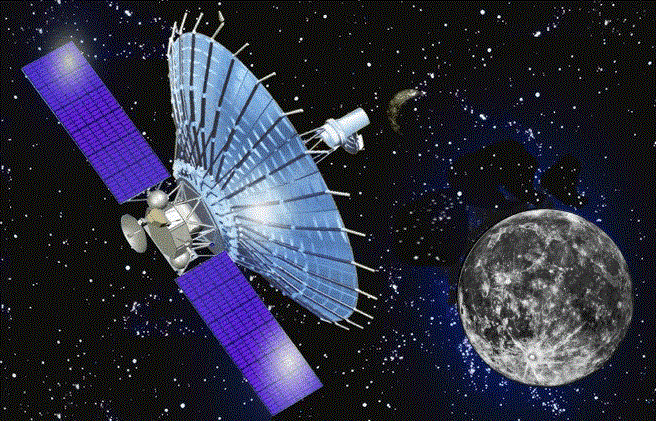
Russia has lost control of its only space radio telescope Spektr-R. The 33-foot satellite, which was launched in 2011, stopped responding to commands on January 10.
Experts with Russia's space agency Roscosmos say cosmic radiation accumulated in the satellite's electronics has caused problems with the communications system. A source from the agency told TASS attempts to regain control of Spektr-R over the weekend had failed and they would be trying again Monday.
Read more: Russia is building a rocket with a nuclear engine for interplanetary travel
A source told the state-run news agency: "The specialists cite the influence of the radiation dosage accumulated during the flight period in the satellite's electronic component base as a possible cause for the failure of the Spektr-R receiving and transmitting device."
According to NASA, space radiation "can have serious effects on satellite operation." Energetic particles can get inside the satellite and "interact with its electronic circuitry. This can cause a wide variety of effects that range from unimportant ones to the shutdown of a vital system," NASA said. "For example, if the circuitry controls the way the satellite is pointing its antenna, the satellite can veer out of contact with ground-based receivers and be temporarily 'lost'."
Spektr-R was only supposed to be operational for a maximum of five years. However, it has remained operational well beyond its expected lifespan. Roscosmos said the satellite is still transmitting scientific data—but researchers at the agency are unable to send commands to it, TASS reports. Yuri Kovalev, head of research for Spektr-R, told the BBC they are still hopeful of regaining a connection with the satellite. Roscosmos said specialists at the space agency are currently "carrying out work to remove the existing problems."
Spektr-R was launched to study radio sources from the Milky Way and beyond. Its creators said the images produced with Spektr-R would have a resolution about 100,000 times that of NASA's Hubble Space Telescope.
At the time of its launch, Viktor Khartov, who was involved in the construction of the satellite, told AFP: "It will allow us to look into the furthest reaches of the universe with a very sharp resolution and receive data about extra-galactic phenomena. The whole world is waiting for this."
Russia is preparing to launch another satellite with Germany's space agency later this year. The Spektr-RG mission is expected to last for six and a half years. It will be used to conduct a major survey of the universe: "It will allow detection of about 100,000 clusters of galaxies and discovery large scale universe structure," a statement from Roscosmos said.
Uncommon Knowledge
Newsweek is committed to challenging conventional wisdom and finding connections in the search for common ground.
Newsweek is committed to challenging conventional wisdom and finding connections in the search for common ground.
About the writer
Hannah Osborne is Nesweek's Science Editor, based in London, UK. Hannah joined Newsweek in 2017 from IBTimes UK. She is ... Read more
To read how Newsweek uses AI as a newsroom tool, Click here.








